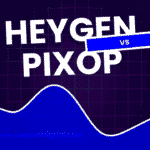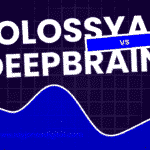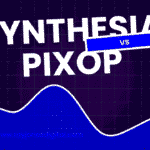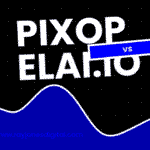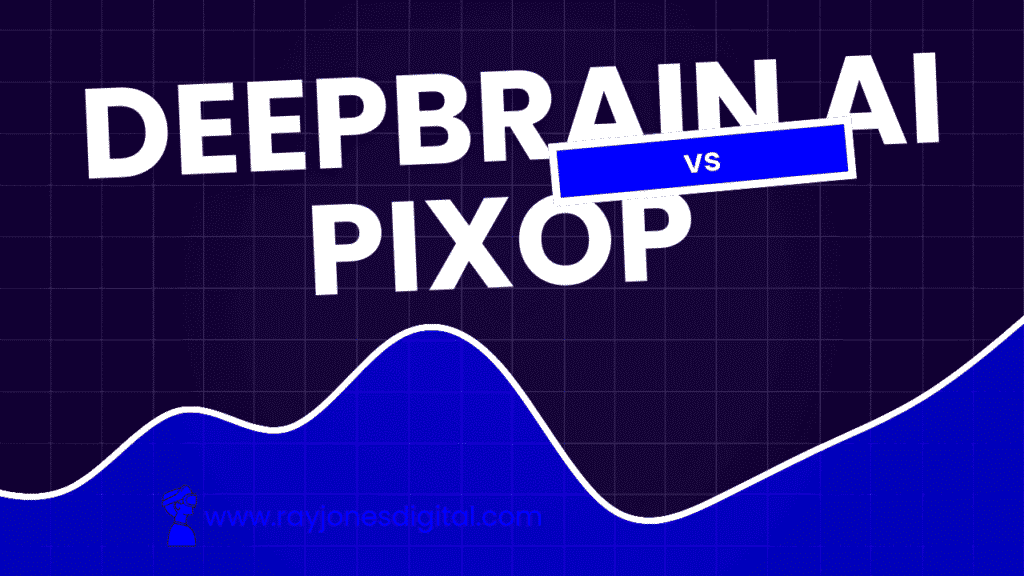
The landscape of AI-powered video technology has evolved dramatically, with platforms offering increasingly sophisticated solutions for content creators, businesses, and media professionals. Two notable players in this space, DeepBrain AI vs Pixop, have carved out distinct niches within the video enhancement and creation ecosystem.
Both platforms leverage artificial intelligence to transform video content, yet they approach this challenge from fundamentally different angles. Understanding their unique strengths, capabilities, and target applications is crucial for anyone considering AI-powered video solutions. This comprehensive comparison examines their features, pricing. And practical applications to help you determine which platform aligns with your specific video processing needs.
What is DeepBrain AI?
DeepBrain AI has positioned itself as a leading platform specialising in AI-powered video generation and avatar creation technology. The company focuses on creating realistic AI humans that can speak multiple languages with natural expressions. And gestures, revolutionising how businesses and content creators approach video production.
The platform’s core strength lies in its ability to generate professional-quality videos using AI avatars that eliminate. The need for human actors, filming equipment, or complex post-production workflows. DeepBrain AI’s technology enables users to create presenter-style videos by simply inputting text scripts. Making video production accessible to users regardless of their technical expertise.
Key capabilities include advanced facial animation technology, multilingual voice synthesis. And customisable AI presenters that can maintain consistent branding across video series. The platform particularly excels in business applications such as training videos. Marketing content, news broadcasts, and educational materials where professional presentation matters.
What is Pixop?
Pixop operates as a cloud-based video enhancement platform that specialises in AI-powered video restoration and upscaling services. The platform focuses on improving existing video content through advanced machine learning algorithms that can enhance resolution, reduce noise, and restore damaged or low-quality footage.
The service targets media professionals, content creators, and businesses who need to enhance legacy video content or improve the quality of existing footage. Pixop’s approach centres on providing professional-grade video enhancement capabilities through an accessible cloud platform that eliminates the need for expensive hardware or specialised software.
Core features include AI-powered upscaling that can increase video resolution up to 8K, advanced denoising algorithms, and restoration tools that can recover detail from damaged or degraded footage. The platform excels at breathing new life into archival content, improving streaming quality, and enhancing video assets for modern distribution requirements.
Feature Comparison: DeepBrain AI vs Pixop
Video Generation vs Enhancement Capabilities
DeepBrain AI excels at creating entirely new video content from scratch using AI avatars and voice synthesis. The platform’s strength lies in generating professional presenter-style videos where users input text scripts and receive polished videos featuring realistic AI humans delivering the content with appropriate gestures and expressions.
Pixop specialises in enhancing existing video content through AI-powered restoration and upscaling technologies. The platform’s algorithms analyse existing footage to increase resolution, reduce noise, and improve overall visual quality, making it particularly valuable for restoring archival content or enhancing low-quality source material.
AI Avatar Technology vs Video Processing
DeepBrain AI’s standout feature is its sophisticated AI avatar creation system that produces realistic human presenters capable of speaking in multiple languages with natural facial expressions and body language. These avatars can be customised to match brand requirements and maintain consistency across video series.
Pixop focuses on advanced video processing algorithms that can intelligently enhance various aspects of video quality. The platform’s AI systems analyse pixel patterns, motion vectors, and temporal information to reconstruct missing detail and improve overall visual fidelity without introducing artifacts.
Voice and Audio Capabilities
DeepBrain AI offers comprehensive voice synthesis technology that supports multiple languages and accents, enabling users to create localised content for global audiences. The platform’s voice cloning capabilities allow for custom voice creation that maintains consistency with brand identity and presenter characteristics.
Pixop provides audio enhancement features alongside video processing, including noise reduction and audio restoration capabilities. While not as extensive as DeepBrain AI’s voice synthesis, Pixop’s audio tools complement its video enhancement features to provide comprehensive content improvement.
User Interface and Workflow
DeepBrain AI provides an intuitive interface designed for efficient video creation workflows. Users can input text scripts, select AI avatars, customise voice characteristics, and generate complete videos through a streamlined process that requires minimal technical expertise.
Pixop offers a cloud-based interface focused on video upload, processing queue management, and enhancement parameter selection. The platform’s workflow emphasises batch processing capabilities and professional-grade output controls that cater to media professionals and content creators with existing footage.
Customisation and Output Quality
DeepBrain AI allows extensive customisation of AI avatars, including appearance, clothing, presentation style, and voice characteristics. The platform supports branding elements and maintains consistent visual identity across video productions, particularly valuable for corporate and educational applications.
Pixop provides detailed control over enhancement parameters, including upscaling algorithms, noise reduction settings, and restoration intensity. The platform’s customisation options focus on optimising video quality for specific use cases and output requirements rather than creative presentation elements.
Pricing Structure Analysis
DeepBrain AI Pricing
DeepBrain AI typically offers subscription-based pricing tiers that reflect the platform’s advanced AI avatar technology and professional video generation capabilities. Plans are usually structured around video generation minutes, avatar access, and feature availability, with options for individual creators, small teams, and enterprise users.
Monthly subscriptions generally include specific generation limits and access to premium avatars, voice cloning features, and priority processing. The pricing structure reflects the platform’s sophisticated technology and professional-grade output quality, positioning it as a premium solution for serious video production needs.
Pixop Pricing
Pixop generally employs a usage-based pricing model that charges based on video processing minutes and enhancement complexity. The platform often provides flexible pricing that accommodates different project sizes and quality requirements, making it accessible for both individual creators and professional media companies.
The pricing structure typically varies based on enhancement type, output resolution, and processing speed requirements. Pixop’s approach emphasises fair pricing that scales with actual usage rather than fixed subscription fees, appealing to users with variable processing needs.
Strengths and Weaknesses
DeepBrain AI Advantages
DeepBrain AI’s avatar technology provides unique value for users who need consistent, professional presenters without the ongoing costs and complexity of human actors. The platform’s multilingual capabilities and voice cloning technology offer significant advantages for global content creation and brand consistency.
The professional focus makes DeepBrain AI particularly suitable for corporate training, educational content, and marketing videos where presentation quality and brand consistency matter. The platform’s reliability and advanced features support professional workflows effectively whilst eliminating traditional video production constraints.
DeepBrain AI Limitations
The avatar-focused approach may not suit users who prefer diverse visual styles or content types that don’t require presenters. Creative professionals seeking varied aesthetic approaches might find the platform’s presentation-centric model limiting for certain projects.
The specialised feature set may overwhelm users who simply need basic video creation without advanced avatar or voice cloning capabilities. The platform’s pricing structure may also be prohibitive for casual users or small-scale projects.
Pixop Advantages
Pixop’s enhancement capabilities provide excellent value for users with existing video content that needs quality improvement. The platform’s advanced upscaling and restoration technologies can significantly extend the lifespan and usability of archival footage or low-quality source material.
The cloud-based approach eliminates the need for expensive hardware or specialised software, making professional-grade video enhancement accessible to users without technical infrastructure. The platform’s batch processing capabilities support efficient workflows for users with large video libraries.
Pixop Limitations
The enhancement-focused approach requires existing video content, making it unsuitable for users who need to create videos from scratch. The platform’s capabilities are limited to improving existing footage rather than generating new content or adding creative elements.
Users seeking comprehensive video creation tools may find Pixop’s specialised enhancement focus insufficient for broader video production needs. The platform’s technical nature may also require more expertise to achieve optimal results compared to more user-friendly creation tools.
Use Case Scenarios
Best Use Cases for DeepBrain AI
DeepBrain AI excels for corporate training videos, educational content, and marketing materials that benefit from consistent human-like presentation. The platform suits businesses and educators who need professional presenters without ongoing actor costs or complex filming requirements.
Training departments benefit from DeepBrain AI’s avatar consistency and multilingual capabilities, particularly when creating content for global audiences. The platform works exceptionally well for users who need reliable, professional-quality presenter videos for business purposes, news broadcasts, or educational series.
Best Use Cases for Pixop
Pixop suits media professionals, content creators, and businesses with existing video libraries that need quality enhancement. The platform excels for archival restoration, streaming quality improvement, and content repurposing that requires higher resolution or better visual quality.
Media companies benefit from Pixop’s advanced upscaling capabilities when preparing content for modern distribution channels or enhancing legacy footage for contemporary audiences. The platform works well for users who need professional-grade video enhancement without investing in expensive hardware or software solutions.

I am Ray Jones Digital
My current occupations: a Digital Marketer, Local SEO expert, Link Builder, and WordPress SEO specialist. Shopify SEO, Ecommerce Store Management, and HTML & WordPress Developer I have been practicing the above mentioned services for more than 10 years now As an SEO expert working with your ongoing projects.
